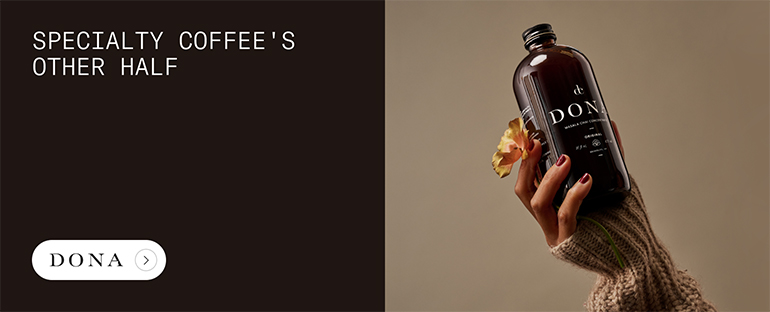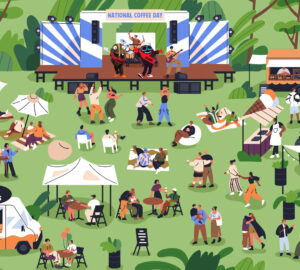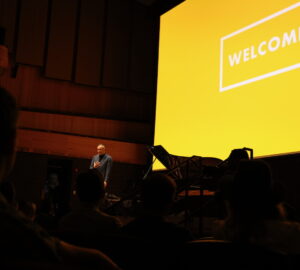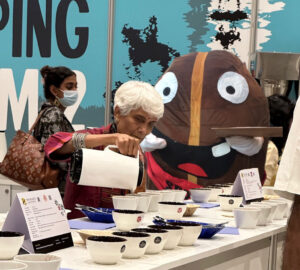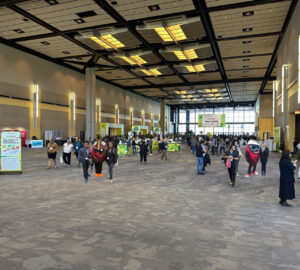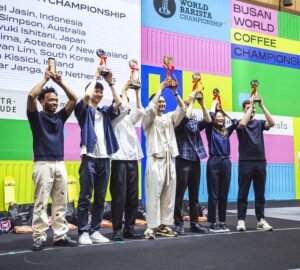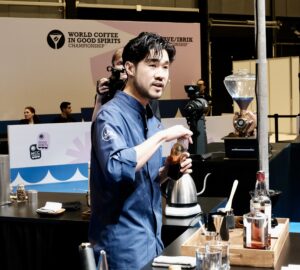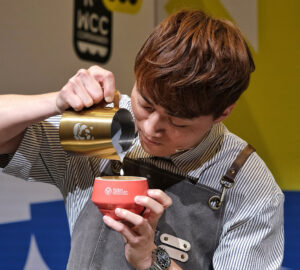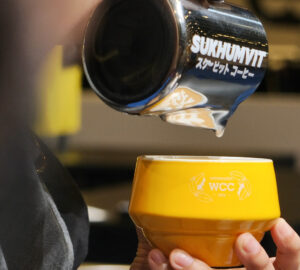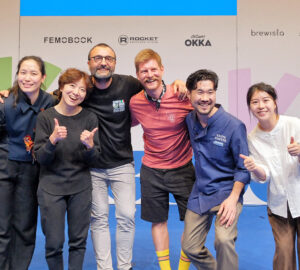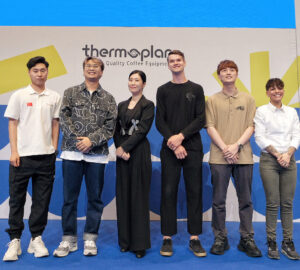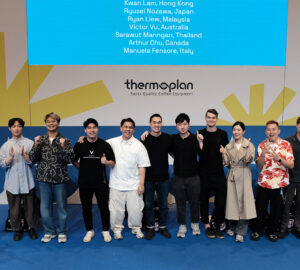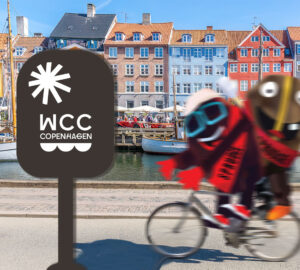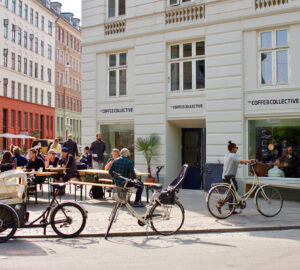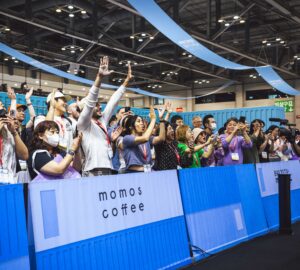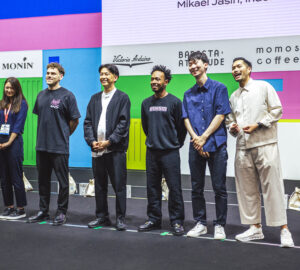
The dazzling SCA Global Coffee Expo showfloor is a land of shiny things—all the better to check my hair in. But once I stopped to look around and hunt for new stories, I discovered a major trend at the show in the form of chic new or fancifully updated sample roasters—products able to roast coffee on a small scale, but without sacrificing big flavor. It seems the market for reasonably sized roasters is booming these days, with plenty of options and more on the way for those who are ready to take the plunge and start roasting their own coffee (a trend that shows no sign of stopping).
One such sample roaster that piqued my curiosity was a beautiful and tech-heavy machine from Seoul-based company Stronghold. It comes with endorsements from the likes of Hidenori Izaki, James Hoffman—two World Barista Champions—as well as Sangho Park, a UK Brewers Cup and Coffee In Good Spirits champion now managing an in-demand global consultancy. Stronghold’s mission is clear: they want cafe owners to try roasting in their coffee shops, and they’re expanding to the US market now. With innovative software and hardware and a compact design, the Stronghold S7 Pro and S9 smart roasters already have 600 users in South Korea, most of whom had never roasted coffee before. And if you listen to Stronghold and walk through their tech—as I did at the event—it’s easy to see why they’re wracking up endorsements.

The S7 Pro, now available for order in US, is tricked out with a patented vertical tower drum to prevent heat loss and a small smoke filter in the back, which effectively deals with the tricky issue of exhaust and fumes in a non-roasting facility. Its 150-850 gram batch capacity is ideal for the small roaster just starting out, while the S9, currently only available in South Korea, has ten times the capacity. The touch screen wifi enabled software is user friendly and customizable with heat and halogen control and the ability to save and replicate roasting profiles.
What most intrigued me was Stronghold’s commitment to sharing roast profiles from experts. They encourage users to connect with roasters using the same coffees in order to strengthen the global coffee community while breaking down barriers for newbies. The $13,000 price point is no small spend, but the machine does look beautiful and takes up an impressively small footprint.

Stronghold’s potential role in the US market is new and unproven, and they’re competing for the same segment of the market as the collaborative roasting projects. On the subject of these roastery collectives, CEO Jason Woo and representative Sungman Chang see their product as a strong alternative. While participating in a roasting collective can open up possibilities for new roasters, “you are not fully engaged in the entire process,” Chang says, translating for Woo. With a smart roaster on your counter, “you can do all of that in your own shop while you’re operating your coffee shop.” Indeed, the image of coffee shop owners who can interact with customers on the floor before walking a few steps to roast their own coffee is a compelling one, which Stronghold promotes in customer interviews on their website.

While Stronghold’s attention to detail and innovative design impressed me, I couldn’t help but be skeptical about its viability somewhere like the Manhattan cafe market. It’s certainly much slimmer and more manageable than a gargantuan Probat, but in a small coffee shop in the big city, where would I stick it? When I asked about cafes facing a true size challenge—a New York quick service joint, say, or an Echo Park broom closet—they told me they were beta testing an even smaller version, the S2, with plans to release it next year. You might consider clearing off the self-serve water station for that one.
Eric J.Grimm is a Sprudge contributor based in New York. Read more Eric J. Grimm on Sprudge.
Photos by Lanny Huang for Sprudge Media Network.














